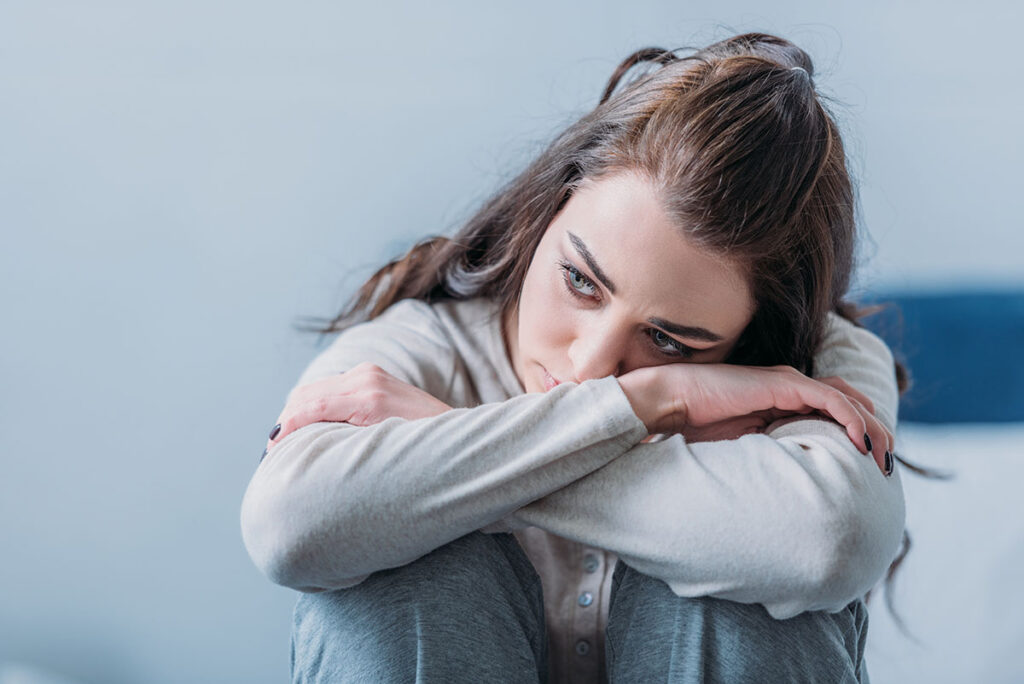What is manic depression? How does it differ from other types of depression? Though they share some commonalities, there are critical differences. Knowing more about depression and manic depression can ensure you get the appropriate treatment. Recovery Ranch can help you learn more about depression versus manic depression and how our depression treatment center can transform your life.
Depression vs. Manic Depression
Depression and manic depression, also called bipolar disorder, are two different mental health conditions. While they share some similarities, such as feelings of hopelessness and sadness, they differ significantly in their severity, duration, and treatment strategies.
Depression includes persistent sadness and despair lasting for weeks or even months. A lack of motivation and changes in sleep patterns often accompanies it. Symptoms can range from mild to severe, depending on the individual’s level of distress. Treatment for depression typically involves a combination of medication, such as antidepressants and psychotherapy, to help manage symptoms.
On the other hand, manic depression is a more severe form of mental illness that involves alternating episodes of depression and mania. During depressive episodes, symptoms are similar to those of major depression. Signs of manic depression include:
- Low moods
- Fatigue
- Difficulty concentrating
- Reduced energy levels
- Social withdrawal
During manic episodes, a person may experience overly exaggerated optimism, irritability, and impulsiveness. Clinicians often prescribe medications like mood stabilizers to manage symptoms.
Types Of Major Depressive Disorder
Major depressive disorder (MDD) is a severe and common mental health condition that affects how a person feels, thinks, and behaves. It can cause intense feelings of sadness, worthlessness, and hopelessness, as well as physical symptoms such as fatigue, changes in appetite, changes in sleep patterns, and difficulty concentrating. People with MDD often lose interest in activities they once found enjoyable or fulfilling. MDD can also lead to anxiety, irritability, thoughts of suicide or death, physical health problems, and an inability to cope with daily activities. While the exact cause of MDD is unknown, it may be related to genetic, environmental, or psychological factors. Treatment for MDD usually includes medication, psychotherapy, or both.
There are multiple characterizations of major depressive disorder. The National Institute of Mental Health (NIMH) characterizes these different types of depression as follows:
Persistent Depressive Disorder
The primary characteristic of a persistent depressive disorder is a depressive mood that lasts at least two years. Those with this type of depression experience significant depression, occasionally accompanied by times when symptoms are less severe.
Perinatal Depression
Perinatal is a significant depression that women experience after the birth of their child. Women can also experience perinatal depression before they deliver their babies. Characteristics of this type of depression include anxiety, sadness, and exhaustion, which make it difficult for mothers to care for their babies.
Bipolar Disorder
Bipolar disorder or manic depression is a disorder that causes extreme mood and energy shifts over varying periods. It often makes it difficult for individuals to carry out everyday tasks that are necessary to live. Those with bipolar may experience a series of hypomanic and depressive episodes that range in severity.
Enter the Depression Treatment Center at The Ranch
Manic depression and depression are two completely different disorders. However, they do share commonalities in depressive episodes. Medication is often beneficial for individuals experiencing extreme cases of either condition. You should take both the symptoms of depression and the symptoms of manic depression seriously.
Seek treatment at Recovery Ranch if you suffer from either of these illnesses so you can begin to live a more healthy lifestyle with coping methods. If you want help with depression or manic depression, contact us at 1.844.876.7680 for information about our treatment programs.

